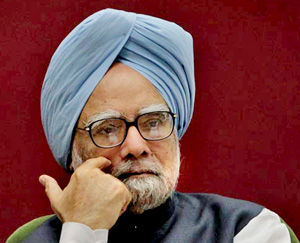New Delhi, March 11: Former Prime Minister Manmohan Singh, industrialist Kumar Mangalam Birla, ex-coal secretary P C Parakh and three others were today summoned as accused by a special court in a coal scam case pertaining to allocation of Talabira-II coal block in Odisha in 2005 and asked to appear before it on April 8.
Special CBI Judge Bharat Parashar summoned the six accused on April 8 for the alleged offences punishable under Sections 120B (criminal conspiracy) and 409 (criminal breach of trust by public servant, or by banker, merchant or agent) of the IPC and under the provisions of the Prevention of Corruption Act (PCA).
Besides these three, the court also summoned M/s Hindalco, its officials Shubhendu Amitabh and D Bhattacharya as accused in the case.
If convicted, the accused are liable to be sentenced for a maximum of life imprisonment.
The case pertains to allocation of Talabira II coal block in Odisha to M/s Hindalco in 2005, when the then Prime Minister Singh was holding the coal portfolio.
CBI, in its FIR, had named Parakh, Birla, M/s Hindalco Industries Ltd and other unknown persons for alleged offences under Section 120-B (criminal conspiracy) of the IPC and under provisions of the PCA.
However, the agency had later on filed a closure report in the court, which had refused to accept it.
The court, in its December 16 last year order, had directed CBI to examine former Prime Minister Singh and some top officials of then Prime Minister Office (PMO), including Singh's then Principal Secretary T K A Nair and then private secretary B V R Subramanyam.
Parakh and Hindalco have denied any wrongdoing.
Pronouncing the order, the judge said, "I am taking cognisance of offences under Sections 120B, 409 of the IPC and under Sections 13(1)(c) and 13(1)(d)(3) of PCA against six accused, M/s Hindalco, Shubhendu Amitabh, D Bhattacharya, Kumar Mangalam Birla, P C Parakh and Dr Manmohan Singh."
Section 13(1)(c) of PCA relates to a public servant dishonestly misappropriating property entrusted to him or allowing any other person to do so.
Section 13(1)(d)(3) relates to a public servant obtaining any pecuniary advantage for any person without any public interest.





Comments
Add new comment